
8 Things to Check When Moving House in Japan
1. Cost of moving
You will need to pay the equivalent of four to six months' rent when you initially rent a property in Japan. Depending on your rental's terms and conditions (deposit, key money, etc.), the initial cost of a ¥70,000 per month property can range from ¥280,000 to ¥420,000. If you plan to buy large furniture or appliances, remember to factor in the cost of their setup or installation. Plan your budget beforehand.
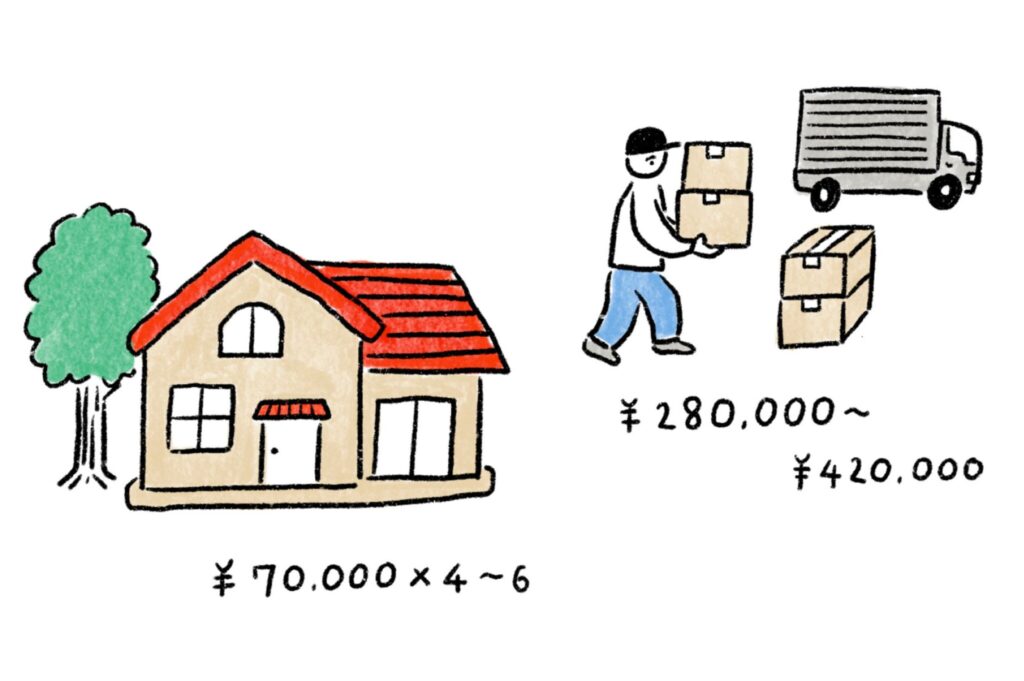
2. When you decide to move, get in touch with your property manager or landlord
In normal circumstances, it is customary to provide your property manager or landlord with at least one month’s notice prior to terminating your tenancy. When you decide to move, give your property manager or landlord notification of the end of your tenancy, including a rough move-out date. Don’t forget to check the rules of the offer and the contact details on the property rental agreement.
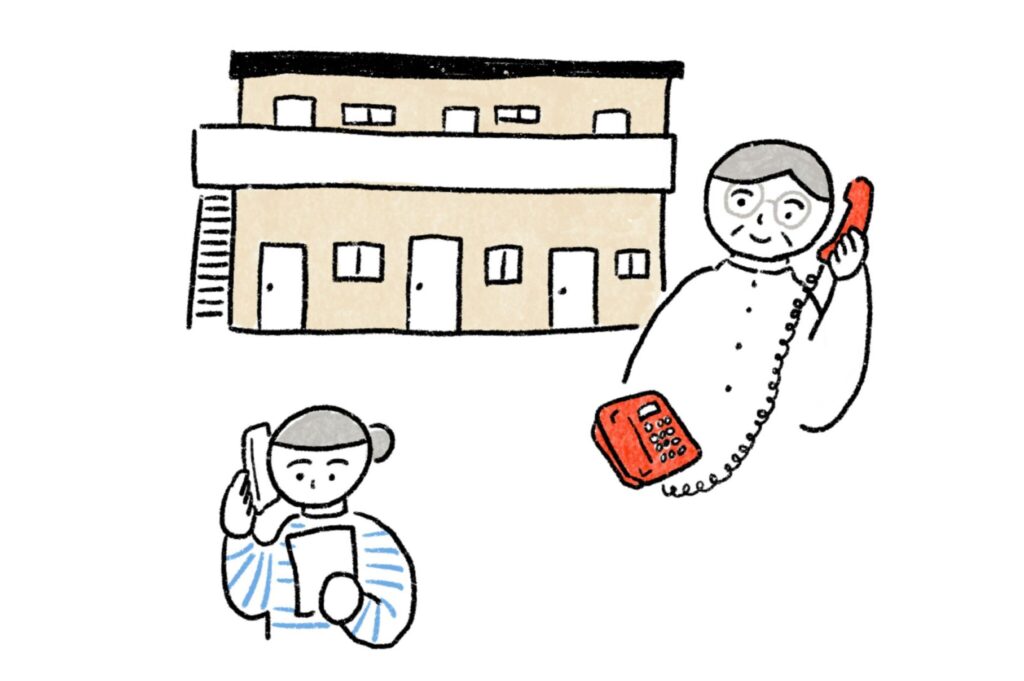
3. How to transport your belongings
The cost of moving depends on how you transport your furniture and things. Here are two ways to move your things, along with their pros and cons.
A. Ask a moving company
Japanese moving companies are skilled at packing and protecting furniture during transport. They also offer efficient cleaning services for end-of-lease properties. Moving companies typically provide boxes to customers, eliminating the need to search for them. The peak season for moving in Japan is March and April, while November is a good time to move as it is less busy.
We recommend using a reliable moving company that can handle packing if you have a generous budget. The cost varies based on the season, time of day, distance, and packing contents, but professional moving companies provide attentive service. To get an idea of the cost of moving, you can contact moving companies via email or phone to ask for an estimate.
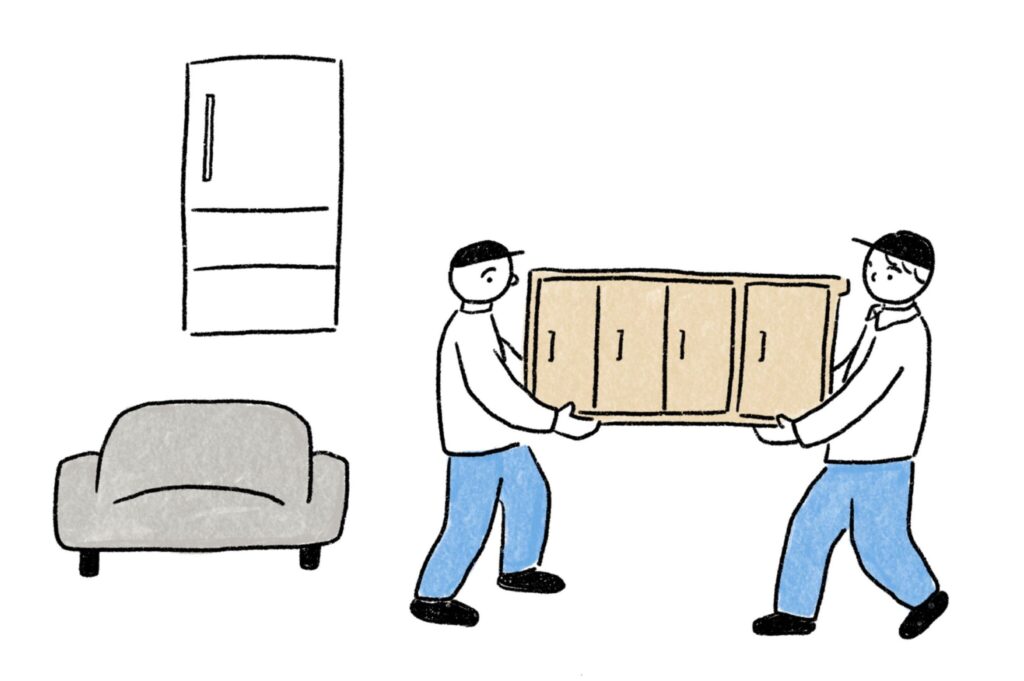
B. Ask a courier service
Suppose you are single and renting a furnished property with only a few boxes. In that case, we recommend using moving services such as Yamato Home Convenience. Once you finish packing your boxes, the service provider will come to collect them, pack them, and then deliver and set them up. They also provide a budget-friendly service for moving single bulky items like beds, refrigerators, and furniture. You can search for a moving service that suits your lifestyle.
Ref: Yamato Home Convenience: https://www.008008.jp/en/
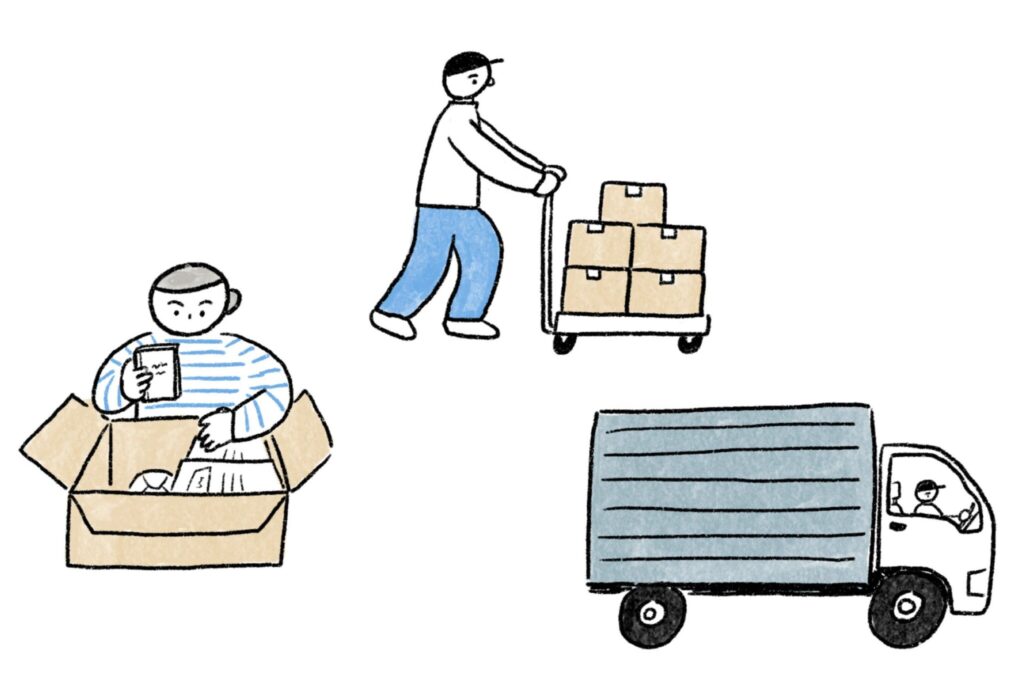
4. Bureaucratic processes required for moving
When relocating in Japan, it is necessary to inform the local government by submitting the relevant notifications. If you are moving to another municipality, you need to submit a “Move Out Notice” and a “Moving In Notice.” If you are moving within the same municipality, you only need to submit a “Change of Address Notice.” The “Move Out Notice” must be submitted at least 14 days before your move, while the “Moving In Notice and “Change of Address Notice” must be submitted within 14 days after the move. You need to bring a document such as your residence card, health insurance card, or My Number card when you submit notices. Please visit the Ministry of Internal Affairs and Communications website for more information.
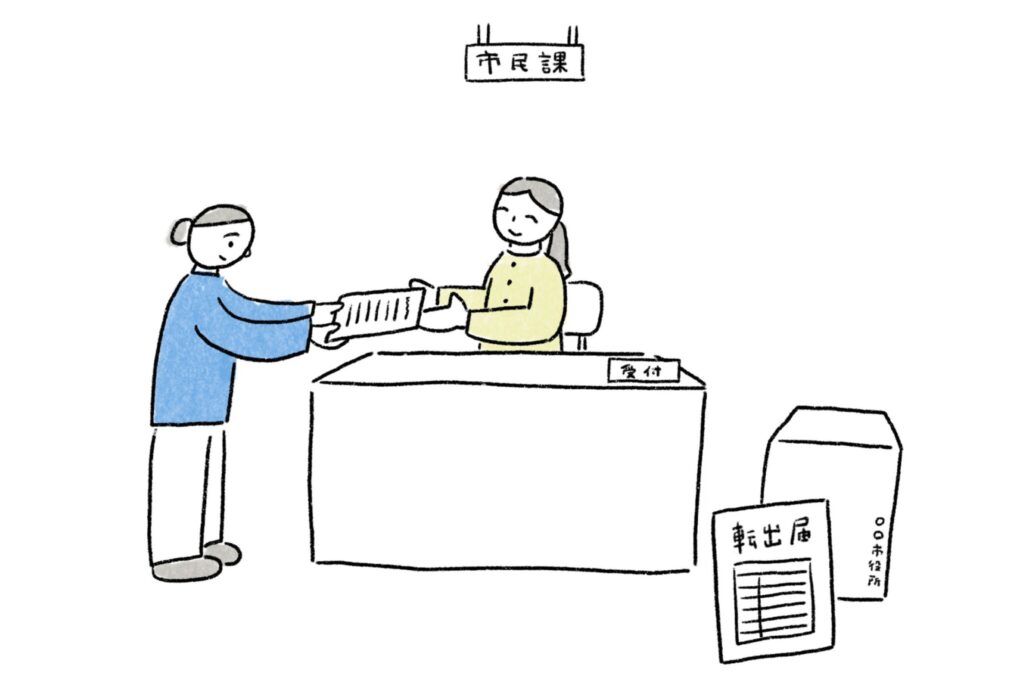
5. Termination/entry into water supply, electricity, gas, and internet contracts
When you move into a new property, it is necessary to sign contracts for the supply of electricity, gas, and water in addition to the paperwork for your apartment or condo. On the other hand, when you vacate a property, you will have to go through the process of terminating the use of these services. You will also need to terminate your internet contract if you have one.

[When you move in]
Please note that you will not need to be present for the connection of your electricity and water supply but for the gas.
[When you vacate]
You don’t need to be present unless someone needs to gain access to the gas or water supply meter in a security-locked building.
You should apply to sign up for essential utility services about a month before the move. Make sure to sign up at least a week before you move and terminate contracts a day before you vacate a property.
Ref: Hikkoshi Renrakucho(https://www.hikkoshi-line.com/navi/)(Japanese only)
6. Apply to redirect your mail
If you are concerned about receiving mail at your old address, there is no need to worry. You can submit a “Notice of Change of Address” to the post office, and they will redirect your mail to your new address for one year. This will give you ample time to update your address. You can apply for the service either by obtaining a form from a post office and filling it out or by using the official ‘E-forwarding’ website. We strongly encourage you to utilize this service.
E-forwarding: https://welcometown.post.japanpost.jp/etn/
(Japanese only)
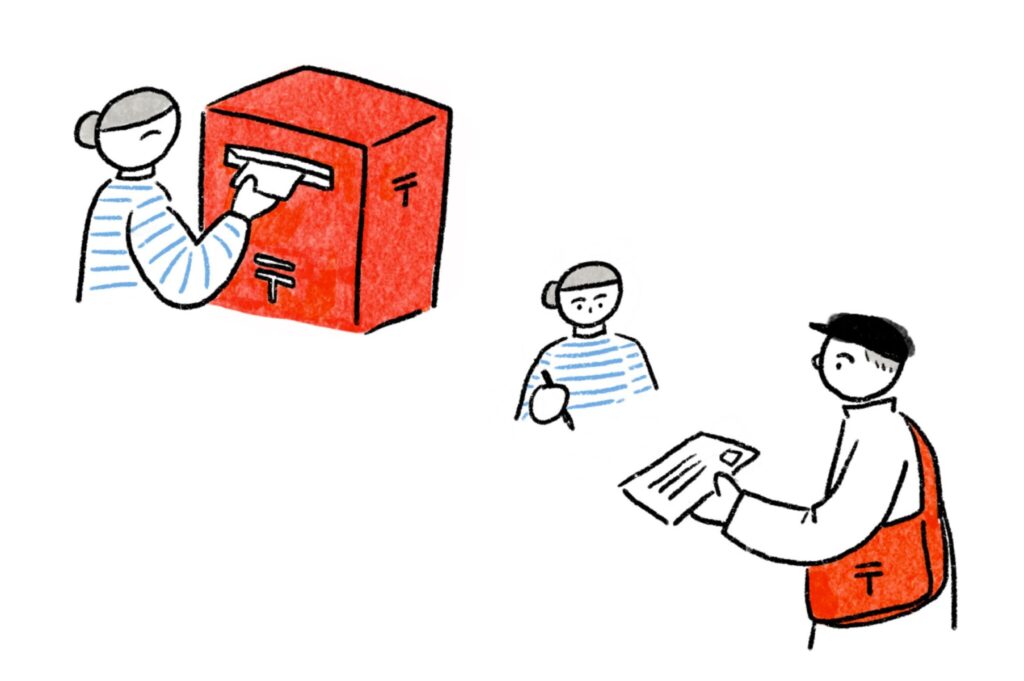
7. Moving-out check
You should be present on the day of the move when the property manager or landlord checks for damage to the walls, floors, etc. This way, you can ensure the moving-out check goes smoothly and amicably and you can protect your rights. If any damage is found, the cost of repairs will be deducted from the security deposit paid at the time of moving in. The remaining amount will be refunded. It is customary in Japan to clean the property before moving out. After you finish packing your belongings, remember to clean the washbasins, floors, and other areas.

8. How to dispose of furniture you don't need
When disposing of large items of furniture and appliances in Japan, you must attach “Bulky Waste” stickers, which are available for purchase. The cost of bulky waste removal varies depending on the type of waste and your local government. To dispose of waste, you need to book a date in advance. Please check your local government website for more information. One way to dispose of useable items is by listing them on Jimoty (ジモティー), which allows you to give them away for free to neighbors or flea market apps, such as Mercari (メルカリ) and Rakuma (ラクマ).
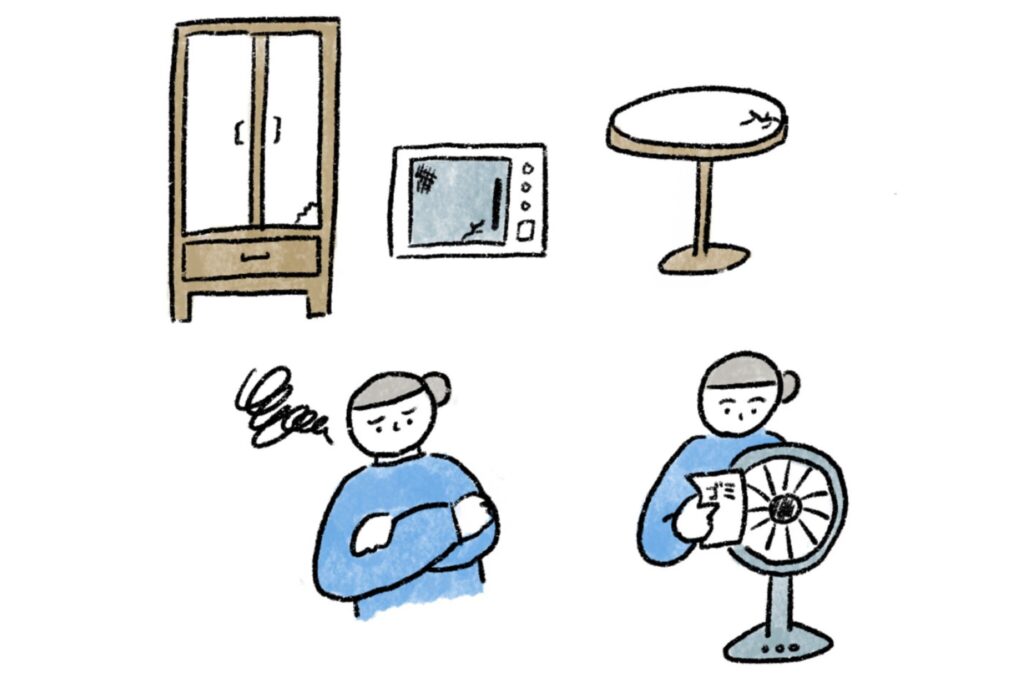
Make sure you are well prepared in advance so that your move goes smoothly!
edit&text_Ami Hanashima






